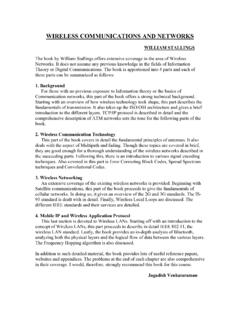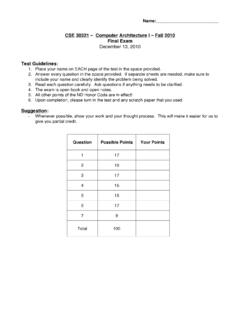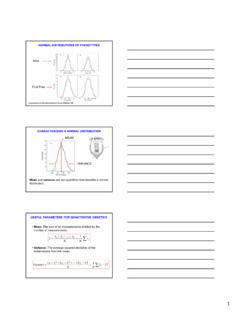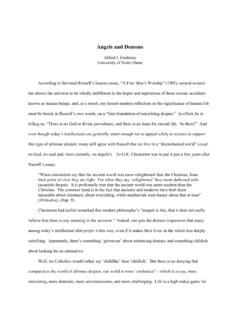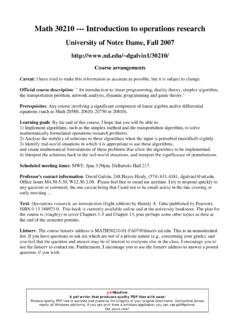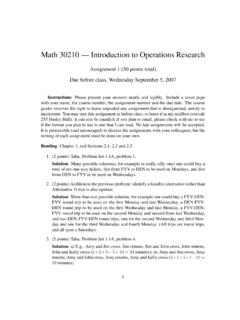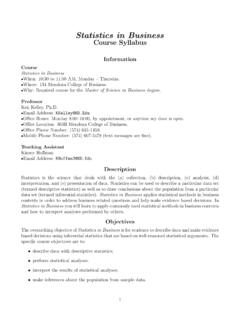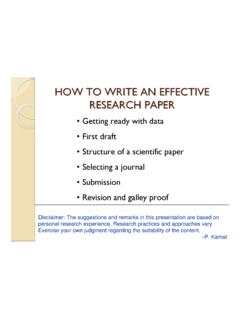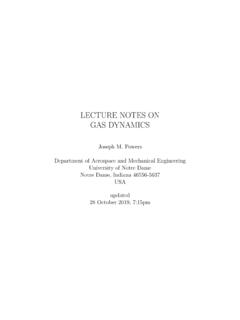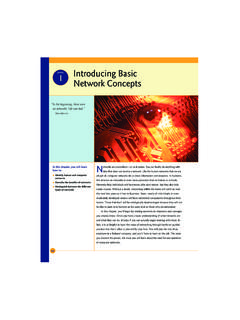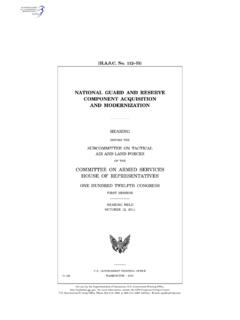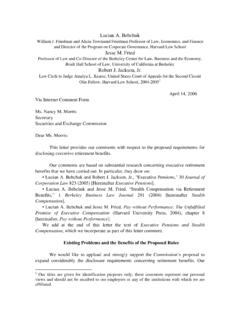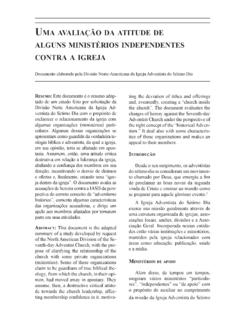Transcription of Father Thomas Joseph White on Wisdom in the Face of …
1 Father Thomas Joseph White on Wisdom in the Face of ModernityAlfred J. FreddosoUniversity of Notre DameIn Wisdom in the Face of Modernity Thomas Joseph White , OP, attempts to re-establish the naturaltheology of St. Thomas himself in propria persona undiluted, undefiled, unassimilated, accept-no-substitutes-or-supposed-improv ements and to do so in the face of challenges that were not present inSt. Thomas s own intellectual milieu but have been especially (and, philosophically speaking,unnecessarily) influential in theological circles. I say, Bravo, Father Thomas Joseph ! And could youplease take your road show next over to fundamental issues in moral theory and philosophicalanthropology?
2 I have been asked to comment specifically on the chapter on Karl Rahner. I ll get to that in amoment. First, though, I would like to help situate the book as a whole within the general project of s natural theology. For Father Thomas Joseph s aim is almost breathtakingly ambitious something that finally got through to me as I re-read for the second time what we might call thephilosophical as opposed to theological culmination of the book, which occurs in Chapter Seven, From Omega to Alpha: Toward a General Order of Metaphysical Inquiry. 1. The book as a whole and St. Thomas s natural theologyLet us begin with the assumption that the locus classicus for St. Thomas s natural theology is theSumma Contra Gentiles.
3 I trust that this is not a controversial assumption, though I would be willing todefend it against naysayers. My own aid to the imagination here is to think of St. Thomas as gatheringup Augustine, Anselm and other important pre-13th century Catholic thinkers residing in Dante sParadiso and taking a trip to the First Circle of the Inferno for a working vacation. (I imagine themrenting a recreational vehicle and traveling on the Inter-Last-Things Expressway.) Now after the nineintroductory chapters of Book One, where Catholic readers are introduced to the notion of philosophicalwisdom, shown the consonance between faith and reason, and assured that their faith is on sureintellectual footing even if they cannot understand the chapters that follow, St.
4 Thomas begins in earnesthis conversation with Aristotle, Plato, Avicenna, Averroes, and the others. Since they all share a widearray of philosophical assumptions, including metaphysical and epistemological realism, and since theyare all familiar with (even if they don t all accept) the basic concepts of Aristotle s logic, philosophy ofnature, and metaphysics, St. Thomas begins immediately in chapter 10 with his discourse on God,arguing in the first place that the existence of a God is not known per se, but that it can be demonstrateda posteriori. In other words, St. Thomas shares so much philosophical background in common with hisinterlocuters that he can begin his conversation with them at a very high wait.
5 Two new visitors arrive on the scene we re not quite sure from which direction representing the modernity in the face of which Father Thomas Joseph is staking his claim to Wisdom . Their names are Immanuel Kant and Martin Heidegger. They rudely interrupt the conversation, assertingthat it is infested by a virus called onto-theology and that the first three books of the Summa ContraGentiles are pure metaphysical bunk. Aristotle is visibly annoyed, but St. Thomas maintains his aura ofcool confidence. Still, he does get that sinking feeling that all teachers experience when forced to goback to square one a feeling that, apparently, even the beatific vision can t completely obliterate.
6 Butnot to fear. Out of nowhere, driving up (somewhat recklessly) in a black convertible with a rosary2dangling from the rearview mirror, comes a young Jewish Dominican waving a manuscript and shouting, Here, St. Thomas , I have some extra chapters to insert between chapters 9 and 10 of Book One! They re all based on what you ve said in your other works, and they show that there s a perfectlyreasonable path of metaphysical inquiry that takes us from our initial sensory experience of the worldright up to chapter 10. What s more, taken together with chapter 10, they show that your naturaltheology is not guilty of the sin of onto-theologizing. This may not shut these two characters up that svery hard to do but it should at least give them some pause.
7 And it s not as if they themselves haven tmade a lot of dubious philosophical assumptions in order to get where they end up. So the question is: Do these extra chapters of Summa Contra Gentiles, Book One, accomplish whatFather Thomas Joseph wants them to? I can t say for sure. This is dense material, and I have to thinkabout the matter some more. But I m fairly certain that they make an impressive beginning of The Chapter on Rahner Now to the chapter on Rahner. Let me say, to begin with, that this chapter is an excellent piece ofwork. Rahner s relevant positions and Joseph Marechal s before him are laid out with great careand utter fairness. The criticisms of Rahner some peculiar to the author and others drawn from thelikes of von Balthasar, Di Noia, Knasas, and Bradley are succinct and, to my mind, convincing.
8 Sowhat s there left for me to do?I had wanted to do two things, only one of which I will in fact do. That will be to argue that byreflecting on St. Thomas s attitude toward the claim that God s existence is known per se, we can makethe argument of this chapter both clearer and more cogent. The second thing I had planned to do was todraw some lessons for the future from the phenomenon of Transcendental Thomism. But Fr. ThomasJoseph s presentation today does as good a job of laying out our present situation as I could have hopedto, and then some. So in this regard I will simply satisfy myself with contributing to the generaldiscussion about the future course of Thomism that I m sure his remarks will important aspect of Rahner s project is to show that God as unlimited and absolute esse isgrasped by every human subject at the horizon, as it were, of our intellective understanding of andjudgments about material being.
9 The conviction that we have this sort of pre-apprehensive grasp ofGod leads Rahner to re-shape St. Thomas s account of the active intellect s role in the formation ofquidditative, , natural kind, concepts. Remarkably, what we get is concept formation by negating andlimiting in various ways the unlimited perfection of absolute esse that we begin by grasping in an unthematized way. So all of our judgments about material substances and their properties presupposean awareness of unlimited perfection and of the fact that such substances fall short of that perfection invarious is much to say here. Notice, first, the echoes of the argument in the Phaedo that ourjudgments about inequality presuppose what we might justly call a pre-apprehensive grasp of perfectequality; or of Descartes s claim in the Third Meditation that the perception of the infinite somehowexists in me prior to the perception of the finite.
10 Malebranche s Augustinianism looms prominently inthe background as well. Indeed, in the Summa Contra Gentiles St. Thomas himself considers a similarargument for the claim that God s existence is known per se: Just as the sun s light is a principle ofevery perception of the visible, so God s light (lux) is a principle of every cognition of the intelligible,since it is in this light that one finds the first and maximally intelligible light-source (lumen). Therefore,3it must be known per se that there is a God. (For the record, St. Thomas s response is this: God is, tobe sure, that by which all things are known yet not in the sense that other things are known only if HeHimself is known, as happens in the case of principles that are known per se, but rather in the sense thatall cognition is caused in us by His influence.)
